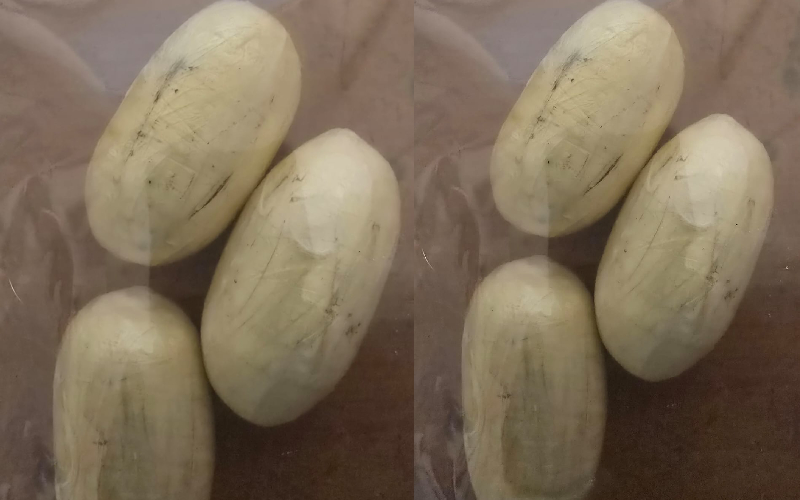A 41-year-old woman was arrested at Jomo Kenyatta International Airport (JKIA) for attempting to smuggle cocaine to Dubai in a high-risk internal concealment method. The suspect, whose name has not been disclosed, was apprehended just minutes before her scheduled flight after raising suspicion during routine passenger screening.
Detectives from the Anti-Narcotics Unit singled her out for further checks, which revealed that she was concealing narcotics inside her body. Subsequent scans confirmed the presence of foreign substances, and under medical supervision, the suspect excreted three pellets of cocaine. Investigators believe that more narcotics may have been ingested, and the woman is currently under observation as authorities complete their investigation.
The arrest highlights the dangers of “body packing,” a method commonly used by drug traffickers, where they ingest or insert drug pellets into their bodies to evade detection. This practice poses serious health risks, including the potential for intestinal rupture, which can lead to sudden death if the drugs leak into the body. International law enforcement agencies have consistently warned about the perils associated with such methods.
Kenya’s Narcotic Drugs and Psychotropic Substances (Control) Act of 1994 criminalizes the possession and trafficking of illegal substances, with severe penalties including life imprisonment. The woman’s attempted smuggling falls under the definition of trafficking, as she was attempting to export the cocaine to Dubai. As a signatory to the United Nations Convention against Illicit Traffic in Narcotic Drugs and Psychotropic Substances (1988), Kenya has committed to cooperating with other countries in tackling global drug trafficking syndicates.
JKIA, being East Africa’s busiest aviation hub, has long been flagged as a transit point for drug couriers moving illicit substances like cocaine and heroin between Africa, Europe, and the Middle East. In response to this threat, the Kenya Airports Authority, in collaboration with the Directorate of Criminal Investigations (DCI) and the Kenya Revenue Authority (KRA) Customs Unit, has implemented stricter screening protocols, including body scanners and risk-based profiling.
Officials emphasized that such arrests are part of Kenya’s broader efforts to combat organized crime networks that exploit vulnerable individuals as drug mules. Authorities also warned that drug offences in destination countries like the United Arab Emirates can result in severe punishments, including capital punishment. The DCI reiterated the country’s commitment to international cooperation in curbing narcotics trafficking to safeguard public health and uphold the rule of law.

